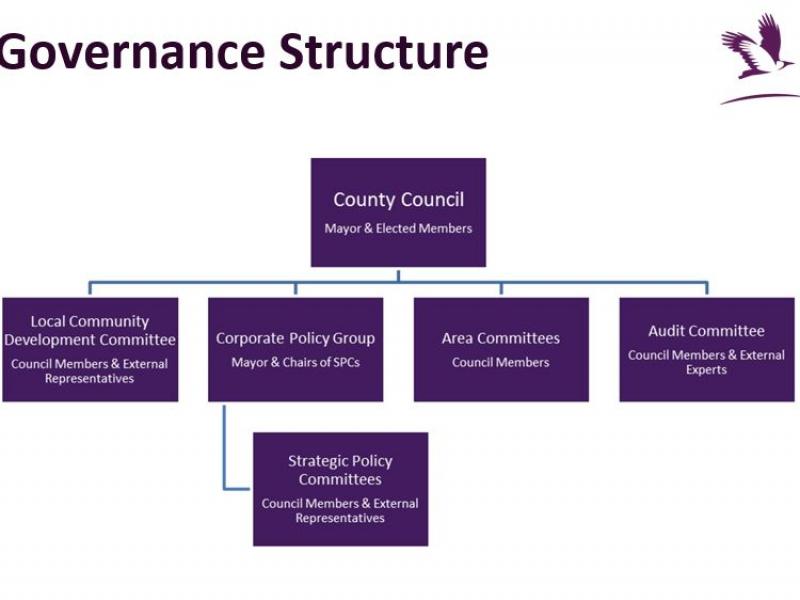Introduction to the Council
Fingal County Council was established in 1994 after implementation of the Local Government (Dublin) Act 1993 when Dublin County Council was divided into four local authorities for the region. Local Government is recognised in the Constitution as providing a forum for democratic representation with new elections for those representatives to take place every five years.
Local authorities are the main drivers of governance at a local level, representing citizens and communities as effectively and accountably as possible. To take a lead role in economic, social and community development while delivering quality, efficient value services.
To achieve this, providing a transparent and accountable local authority is of critical importance to the Council and to support the trust citizens place in it.
Council
The vision of Fingal County Council is to make Fingal the best place to live, work, visit and do business with an objective focus on the quality of life, climate resilience, business environment and our work. Through the work of both the elected members and the executive of the Council
As the policy-making forum of the local authority, the Council and its elected members exercise Reserved Functions across a range of legislation including:
| Adoption of the Corporate Plan |
| Disposal of Land |
| Making a development plan and any variations to it |
|
Adopting an annual budget and variation in the level of Local Property Tax |
| Adopting a scheme of letting properties |
| Making, amending or revoking bye-laws |
| Nominating persons to act on committees or on other public bodies |
The Council meets every 2nd Monday of each month, except for August, as well as holding an Annual General Meeting once a year and an annual budget meeting or when required. These meetings are chaired by the Mayor who is elected for a one year term by their fellow elected Council members. The Mayor's role is to ensure the meetings go to schedule plan and that any business is concluded.
Executive
The Executive functions of the Council are performed by the Management Team led by the Chief Executive. These are the day-to-day functions and business of the Council so as to ensure efficient use of the Council's resources. It also oversees the implementation of the decisions of the elected Council without undue delay.


